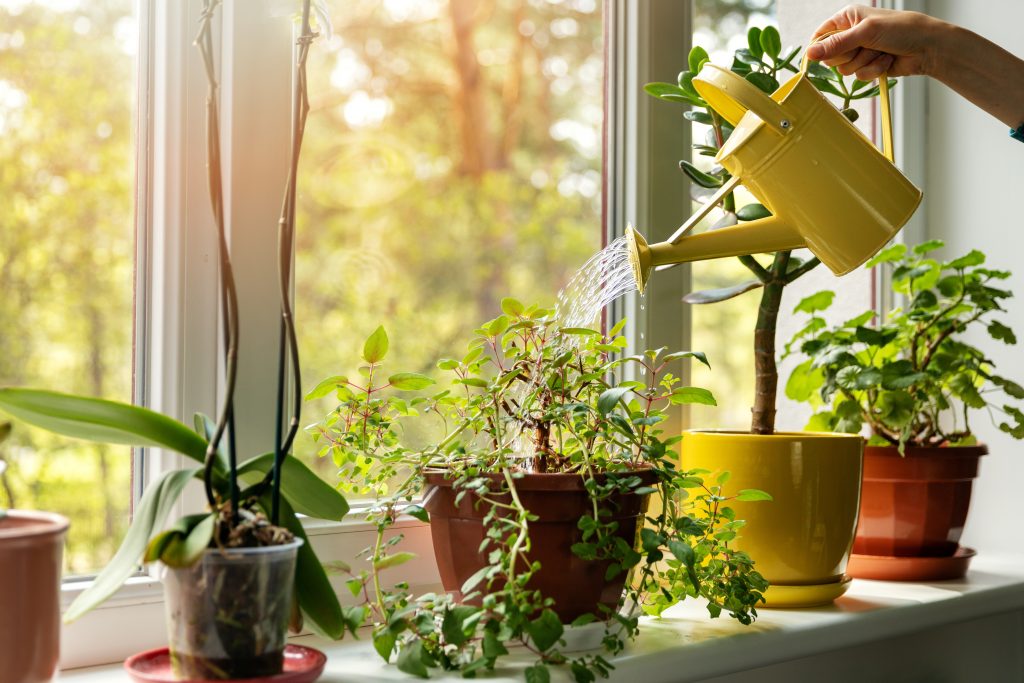Health Benefits of Indoor Plants
Health Benefits of Indoor Plants
We are all aware of the benefits of getting out in nature. But we often overlook the health benefits of indoor plants! We’re not talking about plants you grow to eat or make tinctures or teas from, but plants that increase your health just by being in the same room with them.
Allergies
Plants can reduce dust and provide allergy relief! It’s possible that the air quality inside your home might be worse than the air quality outdoors if you tend to keep your windows closed and run your air conditioning for long periods of time. The airborne toxins and dust levels inside can escalate to illness producing levels. According to FarmandgardenDIY.com:
Indoor plants are capable of reducing dust in their surroundings for two reasons: One, they have a large surface area, which makes attracting dust easier. The other reason is that indoor plants produce negative ions that attract dust, allergens, mold spores, and bacteria, among other pollutants.
Do all plants remove dust from the air? According to the laidbackgardener.com:
Any houseplant will remove dust from the air, but the most effective are those which remain actively growing in winter, such as creeping fig (Ficus pumila), ferns, maranta, umbrella plant, spider plant, peace lilies, African violets and some palm trees, among others.
Worried about all that dust on your plants? The Husker Hort says you can keep your indoor plants healthy by dusting off the leaves with a dust cloth, a short (don’t over water the plant) sprinkle in the shower, or by using the inside of the peel of a banana run over the leaf to remove dust and provide moisture and shine!
Purification
But the benefits of indoor plants don’t end there. Plants such as English ivy, asparagus fern, and dragon tree are particularly good air purifiers. They remove volatile organic compounds (VOCs) that are given off by carpets, paint, cleaners, printer toners and many other indoor objects. These VOCs can worsen asthma and irritate your eyes and skin.
We all know that plants take in carbon dioxide and give off oxygen. However, did you know that some plants keep giving off oxygen even after the sun goes down? Keeping gerbera daisies in your bedroom might give you the extra oxygen you need to achieve your most restful sleep!
Do you suffer from dry, itchy skin or get lots of colds or infections? You might not be in a space with enough moisture in the air. Plants can solve the problem! The more plants you have (or the bigger plants you have), the more moisture in the air!
Other Benefits
Studies have shown that plants may help raise your test scores, make it easier to concentrate on your tasks, and strengthen your memory. Students in classrooms with three potted plants performed better on math, spelling, reading, and science tests than kids in classrooms without any greens.
Studies have been done showing that indoor plants in hospital rooms enhance the health outcomes of patients recovering from surgery. However, no one needs studies to tell them that being around plants and flowers puts a smile on your face, helps you relax , and puts you in a better mood. And, being relaxed helps to lower blood pressure, heart rate, and the level of stress hormones in the body.
At 100 Year Lifestyle we want you to live the longest, healthiest, most enjoyable life possible! Make indoor plants part of the plan! If allergens are of particular interest to you, consider adding to your plant plan of action by finding out about the pros and cons of air filters and purifiers in The Indoor Allergy Generation. 100 Year Lifestyle resources and providers are here to help you achieve your longevity goals!
- SHARE THIS POST



